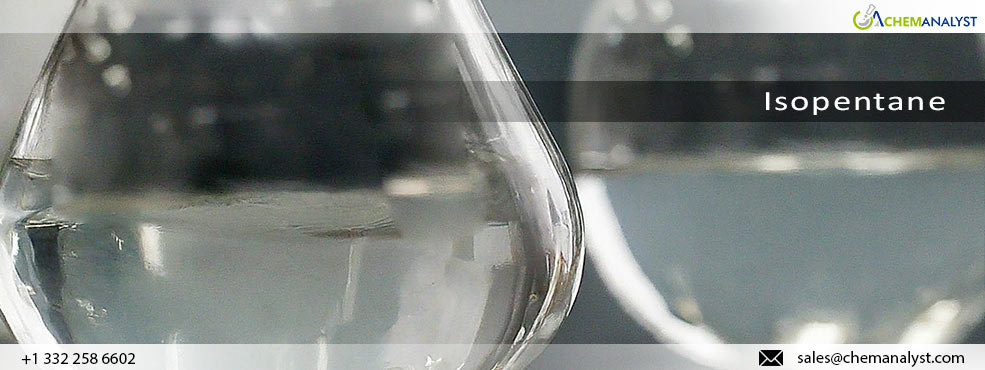Welcome To ChemAnalyst

In July, the Belgian Isopentane market experienced a slight decline of approximately 1%, even though crude oil prices rose by nearly 2.5%. This decrease was largely due to weakened demand from the Expanded Polystyrene (EPS) sector, which has been adversely affected by a slowdown in construction activities. While Belgium experienced some market recovery, European demand for Isopentane remains generally subdued, especially in Germany and France where construction activity continues to lag.
In Europe, the Isopentane production landscape has been impacted by declining petrochemical margins, leading to numerous cracker and refinery closures. Although new refineries are expected to mitigate this issue, the chemical industry plans to cut ethylene production capacity by about 1 million metric tons annually in 2024, as announced by SABIC and ExxonMobil. However, this reduction will be counterbalanced by an additional 2 million metric tons per year of new ethylene capacity anticipated to come online between 2027 and 2028 from new crackers being developed by Ineos in Belgium and PKN in Poland.
The Ineos project, set to be the largest olefins unit in Europe, is the first new cracker to be built in Europe in 25 years. Located in Antwerp, it will have a capacity of 1.45 million metric tons per year and is expected to have carbon emissions three times lower than the European average, and less than half of the emissions from the top 10% of the best-performing crackers in Europe. Despite environmental protests that briefly stalled construction, Ineos aims to complete the plant by 2026, creating further uncertainties across the Isopentane market in the upcoming months.
Although SABIC and ExxonMobil's capacity cuts represent a 4% reduction in current ethylene capacity which may lead to paucity in the supplies of Isopentane, the new additions from Ineos and PKN will result in a 10% increase, which will have a significant impact on the Isopentane market.
Demand for Isopentane remains weak due to continued downturns in the construction sector across Europe. However, Belgium has shown some improvement, driven by a rise in mortgage loans. In the second quarter, Belgium granted over 47,000 mortgage loans amounting to approximately €7.7 billion, reflecting a 5.8% increase in annual credit. Despite a rise in credit applications earlier in the year, the number of approved cases initially fell, but the second quarter saw a positive turnaround. Applications increased by over 4.5% from April to June 2024 compared to the previous year, with a 7.4% rise in application volume and a 5.8% increase in granted loans. This growth was primarily in renovation and house purchase loans, although construction loans continued to decline by 15% leading to pessimistic outlook of Isopentane. The average loan amounts for house purchases and construction rose to approximately €196,000 and €220,000, respectively, with renovation loans averaging €192,000. This moderate support helped the Isopentane market, but overall demand remained weak as the construction sector's downturn extended into the third quarter of 2024. The housing sector was the worst performer which continued to be darg on the European Isopentane market, showing the most significant reduction since April 2020, while commercial activity fell sharply, and civil engineering saw a slower reduction. Weak demand across the eurozone construction sector persisted, leading to a continued decline in new orders, with July's rate of decline being the most marked since March. Germany led the decrease in new business, further weakening demand of Isopentane from the downstream EPS industries.
We use cookies to deliver the best possible experience on our website. To learn more, visit our Privacy Policy. By continuing to use this site or by closing this box, you consent to our use of cookies. More info.
